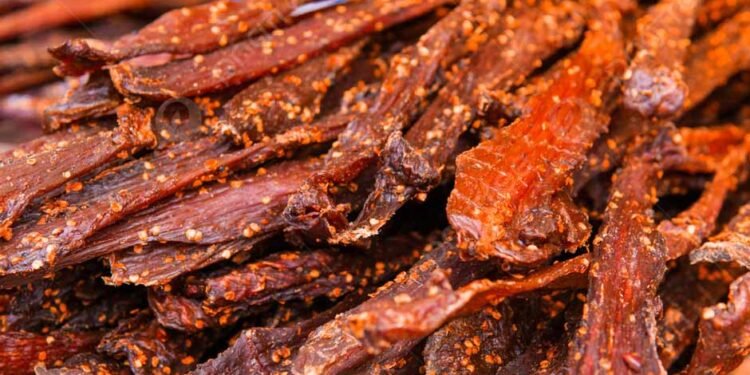In a world increasingly concerned about the environmental impact of meat production, the search for sustainable protein sources has become paramount. Among the contenders for this role is a unique and relatively obscure option: yak jerky. This article explores why this jerky, such as the one offered by https://jerkybrands.com/exotic/yak-jerky/, is emerging as a sustainable alternative protein source with significant potential for the future.
Yak Meat: A Lean and Nutrient-Rich Protein Source
Yak meat is renowned for its lean nature and high protein content, making it a popular choice when you buy meat online. Unlike many traditional livestock, yaks are well-suited to grazing on tough, fibrous grasses, resulting in naturally low fat meat. This makes yak meat an attractive option for health-conscious consumers looking to maintain a high-protein diet without excessive saturated fats.
Additionally, yak meat contains essential nutrients such as iron, zinc, and vitamin B12. These nutrients are significant for overall health, and the presence of vitamin B12 is especially notable, as it’s primarily found in animal-based foods.
The Sustainable Yak Farming Advantage
One of the most compelling aspects of yak jerky’s sustainability is how yaks are farmed. These animals thrive in areas where other livestock struggle, meaning they can graze on land that might otherwise be unusable for agriculture. This reduces the need for deforestation or clearing land for farming purposes.
Furthermore, yaks are well adapted to cold climates, requiring minimal energy-intensive heating or cooling systems. This contributes to a lower ecological footprint in yak farming than traditional livestock.
Ethical Considerations: The Treatment of Yaks
Yak farming often aligns with ethical standards that prioritize the welfare of animals. These hardy creatures have been an integral part of the cultures and traditions of the regions they inhabit for centuries. Yak farmers have a close relationship with their animals and prioritize their well-being.
Moreover, yaks are not subjected to the same intensive farming practices in some conventional livestock industries. This includes practices like overcrowding and the use of growth-promoting hormones and antibiotics. As a result, this jerky can be considered a more humane and ethical source of protein.
The Market for Yak Jerky: Expanding Horizons
While yak jerky may still be relatively niche in many parts of the world, its popularity is growing. Consumers are becoming more conscious of their dietary choices and seek alternatives that align with their values. Its unique taste and nutritional profile make it a compelling choice for those looking to diversify their protein sources.
The global market for alternative protein sources is expanding rapidly. Yak jerky is well-positioned to tap into this growing demand. With its sustainability and ethical advantages, it has the potential to become a staple in the diets of people around the world.
Challenges and Future Prospects
While yak jerky shows promise as a sustainable alternative protein source, it’s not without its challenges. The limited geographic distribution of yaks and the relatively small-scale production can lead to higher costs than more widely available meats.
However, with increased awareness and demand, economies of scale could come into play, making yak jerky more affordable and accessible. Collaboration between yak farming communities, governments, and the private sector can help overcome these challenges and create a more robust market.
Conclusion:
Yak jerky emerges as a compelling solution in a world grappling with the environmental and ethical concerns surrounding meat production. The unique characteristics of yak meat, sustainable farming practices, and ethical considerations make it a viable alternative protein source for the future. As consumers continue seeking healthier and more sustainable food options, yak jerky’s presence in the market is likely to grow. It’s a protein source aligns with sustainability and animal welfare values and offers a delicious and nutrient-rich addition to the modern diet.












